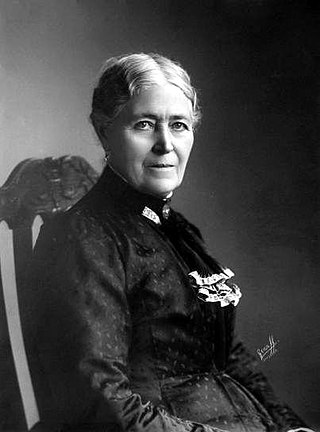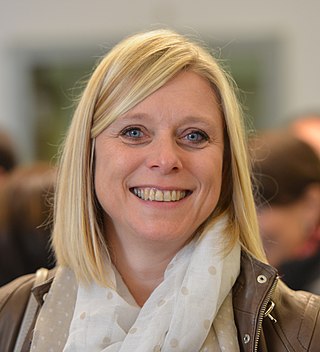
Walloons are a Gallo-Romance ethnic group native to Wallonia and the immediate adjacent regions of Flanders, France, Germany, Luxembourg and the Netherlands. Walloons primarily speak langues d'oïl such as Belgian French, Picard and Walloon. Walloons are primarily Roman Catholic, with a historical minority of Protestantism which dates back to the Reformation era.

Wallonia, officially the Walloon Region, is one of the three regions of Belgium—along with Flanders and Brussels. Covering the southern portion of the country, Wallonia is primarily French-speaking. It accounts for 55% of Belgium's territory, but only a third of its population. The Walloon Region and the French Community of Belgium, which is the political entity responsible for matters related mainly to culture and education, are independent concepts, because the French Community of Belgium encompasses both Wallonia and the bilingual Brussels-Capital Region but not the German-speaking Community of Belgium.
Léopold Genicot was a Belgian historian and medievalist and an activist for the Walloon Movement. He established a centre for the study of rural history and an influential series of guides to medieval historical sources.

Jules Destrée was a Walloon lawyer, cultural critic and socialist politician. The trials subsequent to the strikes of 1886 determined his commitment within the Belgian Labour Party. He wrote a Letter to the King in 1912, which is seen as the founding declaration of the Walloon movement. He is famous for his quote "Il n'y a pas de Belges", pointing to the lack of patriotic feelings in Flemings and Walloons, while pleading for some kind of federal state.
The Walloon Movement is an umbrella term for all Belgium political movements that either assert the existence of a Walloon identity and of Wallonia and/or defend French culture and language within Belgium, either within the framework of the 1830 Deal or either defending the linguistic rights of French-speakers. The movement began as a defence of the primacy of French but later gained political and socio-economic objectives. In French, the terms wallingantisme and wallingants are also used to describe, sometimes pejoratively, the movement and its activists. To a lesser extent, the Walloon Movement is also associated with the representation of the small German-speaking population in the East Belgium of the Walloon Region.
The Walloon Movement traces its ancestry to 1856 when literary and folkloric movements based around the Society of Walloon language and literature began forming. Despite the formation of the Society of Walloon Literature, it was not until around 1880 that a "Walloon and French-speaking defense movement" appeared, following the linguistic laws of the 1870s. The movement asserted the existence of Wallonia and a Walloon identity while maintaining the defense of the French language.
Marthe Boël was a Belgian feminist. She was the third daughter of the liberal senator Count Oswald de Kerchove de Denterghem and Maria Lippens, daughter of August Lippens.
The history of Wallonia, from prehistoric times to the present day, is that of a territory which, since 1970, has approximately coincided with the territory of Wallonia, a federated component of Belgium, which also includes the smaller German-speaking Community of Belgium. Wallonia is the name colloquially given to the Walloon Region. The French word Wallonie comes from the term Wallon, itself coming from Walh. Walh is a very old Germanic word used to refer to a speaker of Celtic or Latin.

The Manifesto for Walloon Culture was a document published on September 15, 1983, in Liège, Belgium. Signed by 75 prominent figures from the artistic, journalistic, and academic communities of Wallonia, the manifesto aimed to promote Walloon culture and identity.

Paul Danblon was a Belgian composer, opera director and administrator, and journalist. He was one of the pioneers of scientific journalism on RTBF. In 1954, after graduating in chemistry from the Université Libre de Bruxelles, Danblon joined the RTBF current events programme, Carnets de l'Actualité. He went on to specialize in producing and presenting popular science programmes such as La Bouteille à encre, Connaître, and Le point de la médecine. He is the author of two books in the area:
Albert Henry was a Belgian Romance philologist and a Walloon activist.

Marie Danse or Marie Destrée-Danse was a Belgian painter-etcher and the wife of the art historian and politician Jules Destrée.
Irène Pétry was a Belgian socialist politician. She was the first female president of the Constitutional Court . She took part in founding a movement called the "Femmes Prévoyantes Socialistes". She was one of the first women to pursue a political career that took her to the highest levels. The main idea for which she fought her whole life was the equality and emancipation of man and woman.

The Union des Femmes de Wallonie was a Belgian women's association founded in 1912 by Léonie de Waha, assisted by Marguerite Delchef, to stimulate interest in Walloon culture and politics. Initially, it encouraged women to participate in the revival of Wallonia, especially in regard to the region's language and folklore. Following the organization's re-establishment after the First World War, more attention was given to women's emancipation. In the 1930s, the focus was on women's suffrage, higher education and professional opportunities for women, although some participants continued to stress the importance of the role of women in the home. From 1920 to 1936, the UFW published the journal La Femme wallonne which generally presented a feminist approach in support of overcoming traditional stereotypes and working towards universal suffrage.

Léonie Marie Laurence de Chestret de Haneffe, generally known as Léonie de Waha, (1836–1926) was a French-speaking Belgian feminist, philanthropist, educator and Walloon activist. She is recognised for her support of education for girls and young women and for establishing schools and libraries. In 1868, she founded the Institut supérieur libre de demoiselles, a girls' high school, in Liège, now known as the Athénée Léonie de Waha. As a result of her interest in promoting women's rights, in 1912 she established the Union des femmes de Wallonie which she headed until she died in 1926.
The following lists events that happened during 1904 in the Kingdom of Belgium.

Éliane Tillieux is a Belgian Socialist politician from Namur (Wallonia) and the first woman to serve as president of the Belgian Chamber of Representatives.
Mathilde Boniface was a Belgian politician and an activist in the Walloon Movement. She was a member of the Chamber of Representatives and the Walloon Regional Council from 1981 to 1985, and a founder and member of the Walloon Rally.
Louise Popelin (1850–1937) was a Belgian pharmacist.
Éliane Gubin is a Belgian historian, researcher and professor of political and social history, specializing in the history of women and feminism. In the late 1980s, she initiated the introduction of women's history at the Université libre de Bruxelles (ULB), where she is professor emerita. She also teaches the history of contemporary Belgium and specializes in social history and political history of the nineteenth century and the first half of the twentieth century, including a re-reading of the World War I. Since 1995, she has been co-director of the Centre d'archives pour l'histoire des femmes.








